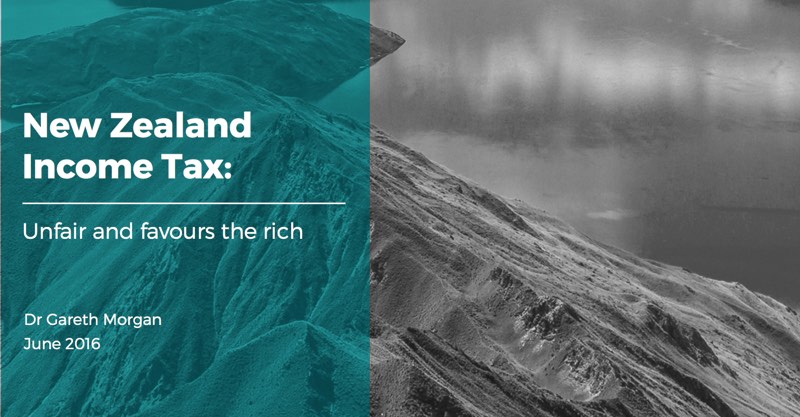This report continues the work on closing tax loopholes that we started in the Big Kahuna. The two main loopholes explored in this report are not taxing the full benefits received by the owners of assets (this is particularly significant in the property market) and the advantages enjoyed by foreign firms competing in the New Zealand domestic market.
These loopholes favour those with wealth, they also favour businesses that are slothful (i.e. don’t even earn a taxable income that is comparable to a bank deposit). The loopholes also encourage people to speculate on the housing market and as a result it has become very difficult for new entrants to get into that market – either as owners or tenants. This is increasing inequality, which is unhealthy for society.
This problem is easily fixed, but some will scream that it’ll kill off their wealth creation. That’s wrong – a profit is a profit, taxing it properly doesn’t eliminate it. In fact, closing tax loopholes will encourage greater investment in productive assets, benefiting the economy.
The report sets out in detail how to close these tax loopholes. In essence we assume that all assets generate a minimum 5% return, and tax on that basis. For international companies Australia and the UK have a deemed tax (45% and 25%) on diverted profits – NZ can do similar simply by requiring foreign firms to justify deductible costs. These changes would ensure any person or company that is currently paying a fair amount of tax wouldn’t pay any more.
Closing the loopholes in our tax system would:
- make the tax system fairer,
- improve the economy by ensuring that investments go where the return is best, not where the tax breaks are highest, and
- generate income for the government, which can be used for additional spending or to reduce tax rates overall.
Preface
If we close the worst of the loopholes in our income tax system we’ll not have to collect as much tax from salary and wage earners. Taxation will become more fair and capital will become more productive.
Rising inequality in New Zealand is most evident when measured by net worth, rather than income. Although there is a paucity of data about net worth, what information there is suggests some of New Zealand’s most wealthy people, persistently and consistently, have relatively modest taxable incomes. So it’s wealth (net worth) we should be watching.
A rise in inequality (however measured) is not necessarily a bad thing. It may simply reflect the dynamics of a modern economy where those who innovate get exceptional rewards for exceptional effort. Think Steve Jobs or Peter Jackson. In theory anyway, the exceptional rewards aren’t necessarily long-lasting – the innovator might have been a one-hit wonder who has a much lower income in the future. But as long as there is a continual stream of innovation delivering exceptional incomes to someone, we can always expect income inequality in a modern market economy. That’s one possible explanation for the rising inequality evident in New Zealand. But there are other, more likely, explanations for rising inequality too – and these are more sinister.
Inequality occurs when some groups in society have enough political clout to secure important economic privileges such as being exempted from tax or receiving substantial amounts of public money or regulatory protection for their earning activities. This type of inequality reflects entrenched power divisions in society and so is more likely to persist from one generation to the next. Such privilege reveals itself as an increasing concentration of net worth.
This paper is concerned about two of the glaring gaps – deliberate loopholes – in New Zealand’s income tax regime. These loopholes have persisted for many decades and have contributed to a rising concentration of wealth, particularly but not exclusively, held in the form of property assets. These loopholes have distorted investment and income, and ultimately undermined the growth potential of the economy. Not surprisingly, these loopholes are of increasing public concern as well.
The proposal here is reform of the income taxation regime. The reform I suggest is not incremental, it is fundamental. I propose that New Zealand moves from a tax regime that confers privilege and amplifies inequality, to one that supports equality of opportunity, freedom of choice, and higher living standards. Such a radical change will, of course, have to be introduced carefully as there will be important transition issues.
This paper is based on work initiated in the 2011 publication of the book, “The Big Kahuna”, and updates and refines one side of the tax and welfare reforms proposed in that work. It is part of a project that looks at the need for even wider taxation reform and considers options for reform of social welfare. The intention is to produce a sequel to The Big Kahuna, late in 2016.

